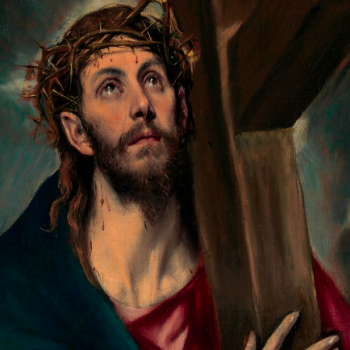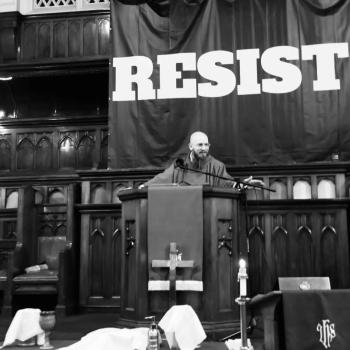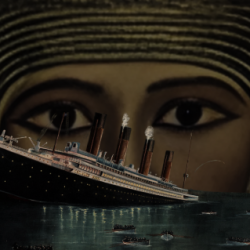A state which brings into being again government according to God's Laws should, in doing so, be assured not only of the applause but also of the glad and active cooperation of the Church. With gratitude and joy the Church takes note that the new state bans blasphemy, assails immorality, and establishes discipline and order, with a strong hand, while at the same time calling upon man to fear God, espousing the sanctity of marriage and Christian training for the young, bringing into honor again the deeds of our fathers and kindling in thousands of hearts, in place of disparagement, an ardent love of Volk and Fatherland. (Quoted in Matthew D. Hockenos, A Church Divided: German Protestants Confront the Nazi Past [Indianapolis: Indiana University Press, 2004], 17.)
This is not the sort of "Radical 2k" theology that forbids the church to address politics. While conservative Lutherans recognized that the two kingdoms doctrine forbade the sort of partisanship and Nazification of the church advocated by the "German Christian" movement, their theology committed them to a nearly unconditional solidarity of Volk and Fatherland that called for just the sort of synthesis of church and state, of politics and Christian morality, that Hitler tended to praise in his rhetoric.
Even in the Confessing Church, the wing of German Protestantism that opposed the Nazification of the church, failure to oppose the government's racial policies arose not from a two kingdoms doctrine that rendered the church passive in its resistance but from an anti-semitism that made the balance of the church active in its cooperation. Prominent Confessing Church leaders like Otto Dibelius, Theophilus Wurm, and Barmen co-author Hans Asmussen publicly defended the regime's campaign against Judaism and a 'mild' marginalization of the Jews. As one pastor declared in the early years under Nazism, it was legitimate for the German government to advance an anti-semitic policy as long as that policy was kept within "biblical limits."
To be sure, these leaders did not imagine the genocide to which Nazi racial policies would eventually lead. In a rare display of courage, Bishop Wurm later protested the regime's mass murder of the Jews in a personal letter to Hitler. But by the time many members of the Confessing Church awoke to their complicity with Nazism, the war was well underway and the regime had little trouble suppressing the voices of dissidents. Those few who had the courage to speak out publicly were imprisoned or killed. (See Barnett, For the Soul of the People, 122-154. See also Wolfgang Gerlach, And the Witnesses Were Silent: The Confessing Church and the Persecution of the Jews [Trans. Victoria J. Barnett; Lincoln: University of Nebraska Press, 2000].)
Throughout the 1930s there were heroic voices within the Confessing Church, including men like Dietrich Bonhoeffer and women like Marga Meusel, who castigated the church for its failure to proclaim the implications of the gospel and of Christian love in defense of the Jews. Some pastors and theologians did use the two kingdoms doctrine to justify their failure to speak against Nazi injustice, and contemporary two kingdoms advocates need to take this failure seriously. Simply because a matter is political (i.e., anti-semitism was deemed political) does not mean the church should refuse to address it, as some Lutherans seemed to believe.
But the more poignant warning of this history is surely to avoid conflating our political ideologies with the will of God, thereby rendering ourselves vulnerable to the manipulation of politicians at best, and offering them the positive support of the church at worst. As Dietrich Bonhoeffer's biographer and fellow Confessing Church member Eberhard Bethge reflected, too many Germans had replaced their allegiance to the Christ revealed in Scripture with an allegiance to a German god of their own making. And "when a different god is made out of Christ—a Hellenistic or Teutonic or Jerry Falwell-made American god—then the first commandment is being violated." (Barnett, For the Soul of the People, 131)
In far too many cases in Nazi Germany the problem was not that pastors were being too quiet, but rather, they were being too loud—in their support for Hitler. Beguiled by their nation and its political ideology, they lost all perspective on their proper responsibilities in the pulpit and to the state. That's why Barmen Declaration author Karl Barth insisted, like Michael Horton, not that the church become more involved in politics, but that the church free itself from politicization. Only when the church maintains its allegiance to the word of God, proclaiming Christ consistent with the rule of love, and allowing the chips to fall for or against the state where they may, should pastors take up the prophetic voice.
Horton and contemporary Reformed two kingdoms theologians agree that the church must preach the whole counsel of God, declaring racism to be heretical, marriage to be between a man and a woman, and the life of the unborn to be inviolable. But they insist that the church must distinguish between our politics and God's law to avoid just the sort of politicization of the church that occurred in 1930s Germany. This is in contrast to the project of American Vision, which involves a worked out synthesis between Christianity and a very concrete political ideology. McDurmon reveals his hand at the end of his essay, when he compares those who do not support his brand of conservative politics with those who failed to resist the Nazis.




